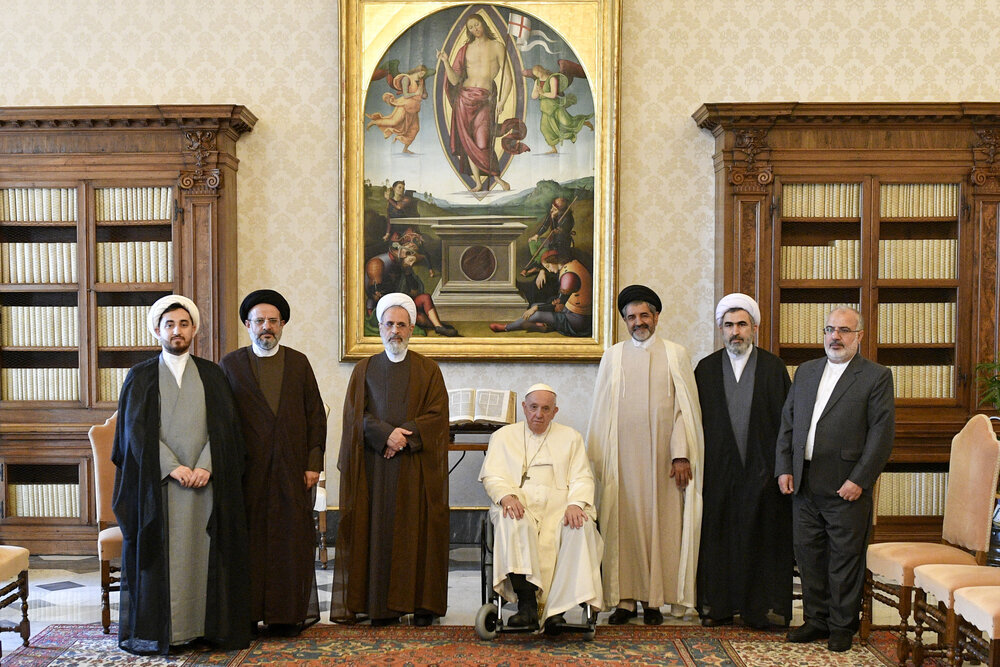Ayatollah Alireza Arafi, head of Iran’s Islamic Seminary met with Pope Francis, head of the Catholic Church, at the Vatican City on Monday, May 30 to expand and deepen interaction with the Vatican.

Iran and the Vatican established full diplomatic ties in 1954 and the bond has remained uninterrupted ever since. Not many reflect on the fact that the Vatican and Iran both represent spiritual traditions that have much more in common than might initially come to mind.
The meeting stressed the importance of interaction and synergy between religions, as well as the condemnation of oppression and crime against the oppressed people of the world.
The Head of Iran’s Seminary, who was warmly welcomed by the Pope, emphasized the intellectual and epistemological capacities of Islam, Shi’ism as well as seminaries to promote interaction between divine religions in order to solve the intellectual, cultural and social challenges of contemporary mankind. .
The member of the Supreme Council of Islamic seminaries Ayatollah Arafi elaborated on some of the most serious challenges of contemporary world and went on to list oppressions against nations, poverty and hunger, warmongering rhetoric, illegal occupation of sovereign states and internationally organized oppression, environmental crises and the increase of extremism are some of the greatest challenges and crises of our era.
“Such crises cannot be overcome without the effective role of the divine religions, and seminaries are ready to cooperate with international scientific-religious institutions, including the Catholic Church to solve these issues.” Ayatollah Arafi added.
Ayatollah Arafi considered Islamic teachings and the teachings of Ahl al-Bayt (PBUT) as deep treasures of jurisprudential, legal, intellectual, philosophical and theological knowledge that serves as a historical heritage of seminaries which can meet the needs of present world. Such teachings are meant to serve beyond the Shia audience since Islam should have an audience on a global scale and be the basis of religious and international understandings, interactions and synergies.
